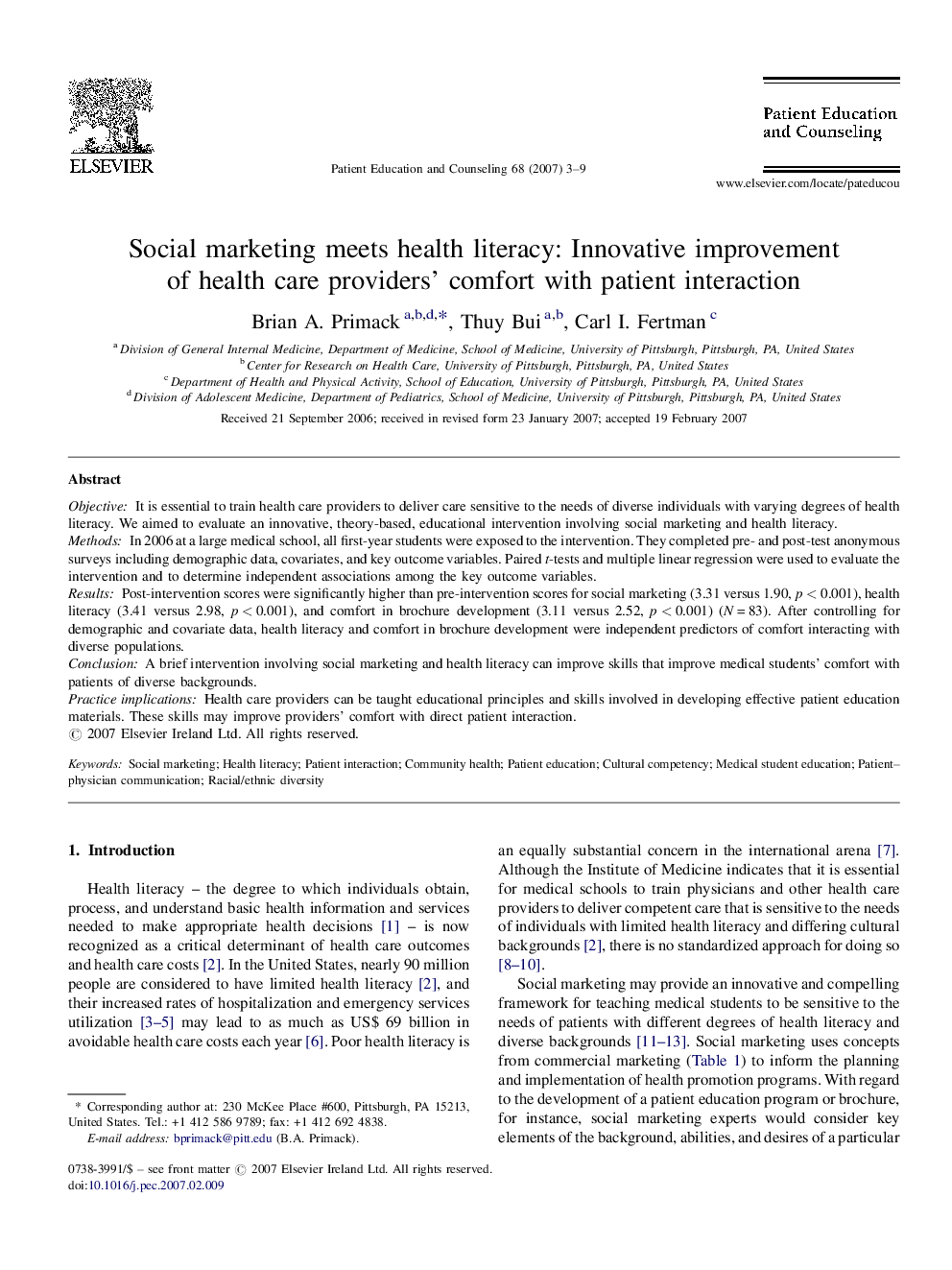| Article ID | Journal | Published Year | Pages | File Type |
|---|---|---|---|---|
| 3815425 | Patient Education and Counseling | 2007 | 7 Pages |
ObjectiveIt is essential to train health care providers to deliver care sensitive to the needs of diverse individuals with varying degrees of health literacy. We aimed to evaluate an innovative, theory-based, educational intervention involving social marketing and health literacy.MethodsIn 2006 at a large medical school, all first-year students were exposed to the intervention. They completed pre- and post-test anonymous surveys including demographic data, covariates, and key outcome variables. Paired t-tests and multiple linear regression were used to evaluate the intervention and to determine independent associations among the key outcome variables.ResultsPost-intervention scores were significantly higher than pre-intervention scores for social marketing (3.31 versus 1.90, p < 0.001), health literacy (3.41 versus 2.98, p < 0.001), and comfort in brochure development (3.11 versus 2.52, p < 0.001) (N = 83). After controlling for demographic and covariate data, health literacy and comfort in brochure development were independent predictors of comfort interacting with diverse populations.ConclusionA brief intervention involving social marketing and health literacy can improve skills that improve medical students’ comfort with patients of diverse backgrounds.Practice implicationsHealth care providers can be taught educational principles and skills involved in developing effective patient education materials. These skills may improve providers’ comfort with direct patient interaction.
